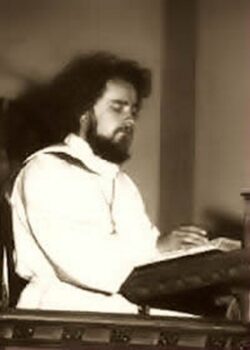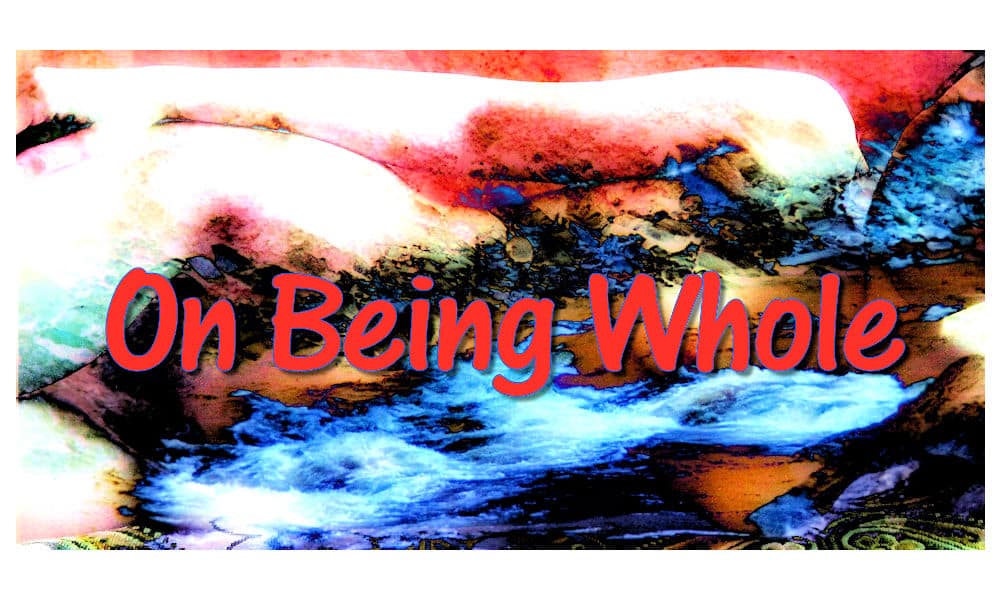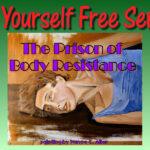On Being Whole — it’s natural to segment ourselves, but that doesn’t make it helpful. Some ideas on wholeness.

This Endless Moment
An excellent guide to life and living.
Learn to focus your attention of who you really are.
Purchase all formats from Amazon
Purchase digital versions
(Apple, Nook, Kobo, etc.) from this page
Would you consider writing an article on how we can balance the spiritual side of our lives with the everyday mundane world of making a living? In other words — a blending of the two that allows use to combine both in to living a more fulfilling life?
Why, sure!

The short answer is, the issue goes away when you stop thinking of the two as different or mutually exclusive.
Here’s the long answer.
In the West, several hundred years ago, during the “Enlightenment,” (a joke, because not many seemed all that enlightened,) both knowledge and “life” got divided.
Prior to the Enlightenment, “the Religious,” (and especially Doctors of Theology) were the only ones educated enough to have “all the answers.”
They had, by fiat, control of the bodies, minds and souls of the populace.
With the Enlightenment “Science,” came to the forefront, and we got Doctors of Science, and Doctors of Medicine. As the University gained more power, the Church lost some.
The initial reaction of the Church was simply to excommunicate those who proposed scientific theory that was seen as contradicting the Bible. If the person didn’t recant, they tossed ’em to the Inquisition and declared ’em heretics.
Realizing belatedly that scientific theory was actually verifiable, frying, boiling, flaying and disemboweling became less the preferred method for the Church to express displeasure. The Church, methinks, has much to account for…)
Ultimately, the Church opted to carve things up into sacred and secular.
They gave “body and mind” to the Doctors, “the secular world” to the Scientists and “the sacred and the soul” … well, they kept that for themselves.
Back then, the Church pretended that they alone possessed the keys to the kingdom, so the general populace (and fearful scientists) considered the Church to be the arbiter of “the ultimate” — this being accomplished not by logic, but through fear of excommunication.
“The Church” carries much less weight in most circles these days, but the detritus of the past is this — people have trouble dropping the artificial distinction between “spiritual and mundane.”
This practice of carving things up to better understand them is a distinctly Western practice. We have created smaller and smaller areas of expertise.
A friend of ours did her PhD. in whale genetics. She was able to figure out the mitochondrial DNA relationship structure within different pods of Wright whales, something no one else had been able to do.
When she presented her dissertation, there were several hang-ups, not the least of which was that there were only 2 whale geneticists in the world who could be trusted to figure out whether her “markers worked.”
Geez, not even enough for a bridge game (unless you invite a whale.)
We have become a culture of experts unable to communicate “across fields of expertise.”
As a former member of the clergy, I know how the game is played.
I remember thinking that only clergy could do certain things. I felt a calling (notice the language – called into service, ordained, set apart, etc.) to “be of service,” and I believed that call to be from God. So, I had to go to seminary, get ordained and don the outfit.

It took me until I was 45 to build up sufficient steam to leave mother church, never to return.
But I had blown off the “division of knowledge” baloney a decade earlier, and I invite you to do the same.
Consider this: in the West, why does there seem to be a short list of “spiritual things” and a long list of the supposedly secular or mundane?
I think that part of the answer is that, in the West, we are human do-ings as opposed to human be-ings.
In the midst of my 2‑year Masters in counselling I went to my supervisor with a question about doing excellent therapy. She sighed and shook her head and said, “You don’t do it, you be it.”
To learn that lesson meant to let go (at that point) of 31 years of conditioning.
Our culture tells us that we “do” spiritual things in “spiritual places” and in prescribed “spiritual ways.”
This jibes with the notion that our bodies are at war with our spirits, that sexuality is un-spiritual, that there are “cleans & dirties” and that our secular work is “filthy lucre” — at best, it provides the money to fund the real, spiritual, important stuff.
So, if you want a way around this, here it is. Enact your spirituality in everything you do. Stop carving up your life into compartments. Work on seeing all of life as lush with spirit and soul.
This is captured in the Zen and Buddhist and Taoist idea, “chop wood, carry water.”
If I choose to engage with my tasks and with the people I come into contact with in a full, deep, honest, and “soulful” manner, how could this not be described as practicing my spirituality in the world?
If I make the other choice, then I am cutting myself off from my roots for most of my week, just showing up and doing my job, putting in time and wasting my life. And then trying to make up for it with some church here, some prayer there and a little meditation in the morning to help me survive another day of the life I have chosen for myself.
Because here’s the kicker: no one makes us do the job we do. The “I have no choice, I have to work and this is the only job I can do” is simply crap.
I, and only I, decide who I am relationship with (and how) and what I do and how I spend the 24 hours per day I’m given.
If I choose to bore myself, anger myself, just put in time, or otherwise fart around with that time, I need only look in the mirror to see who is causing my distress.
I remember back fondly to the original run of Kung Fu, with David Carradine. This was, for many people, a first, somewhat Westernized look at Eastern thought.
What I loved most was watching Kwai Chang Caine enter a town, and immediately get a job. Now, remember, he’s a Shaolin Priest. Yet there he is, week after week, “chopping wood, carrying water.”
And not getting fired, not sleeping on the job, and emphatically not griping about the workload. He just shows up and does his job, and in that process is afforded opportunities to “be of service.”
And that may be what we all need to be: Eastern Westerners/Western Easterners.
This week, look at the compartments you artificially create in your life. If you hate your job, get some training or just go do something else. What, you think you have forever? Or if you are making yourself miserable over aspects of your job, change your attitude.
If you think there is a separation of “worlds” that keep you from being who you are, get over this thought.
If you think that there are no lessons to be learned and no light to be shed on the situations and the activities of your life, give your head a shake.
And if you are disregarding your body, your sexuality, your eroticism, your humour – because you think parts of you are un-spiritual, give your whole self a shake.
And then, chop wood, carry water. Celebrate your life and your body as a unified whole.
Because any other story is fragmentary, at best. 😉





